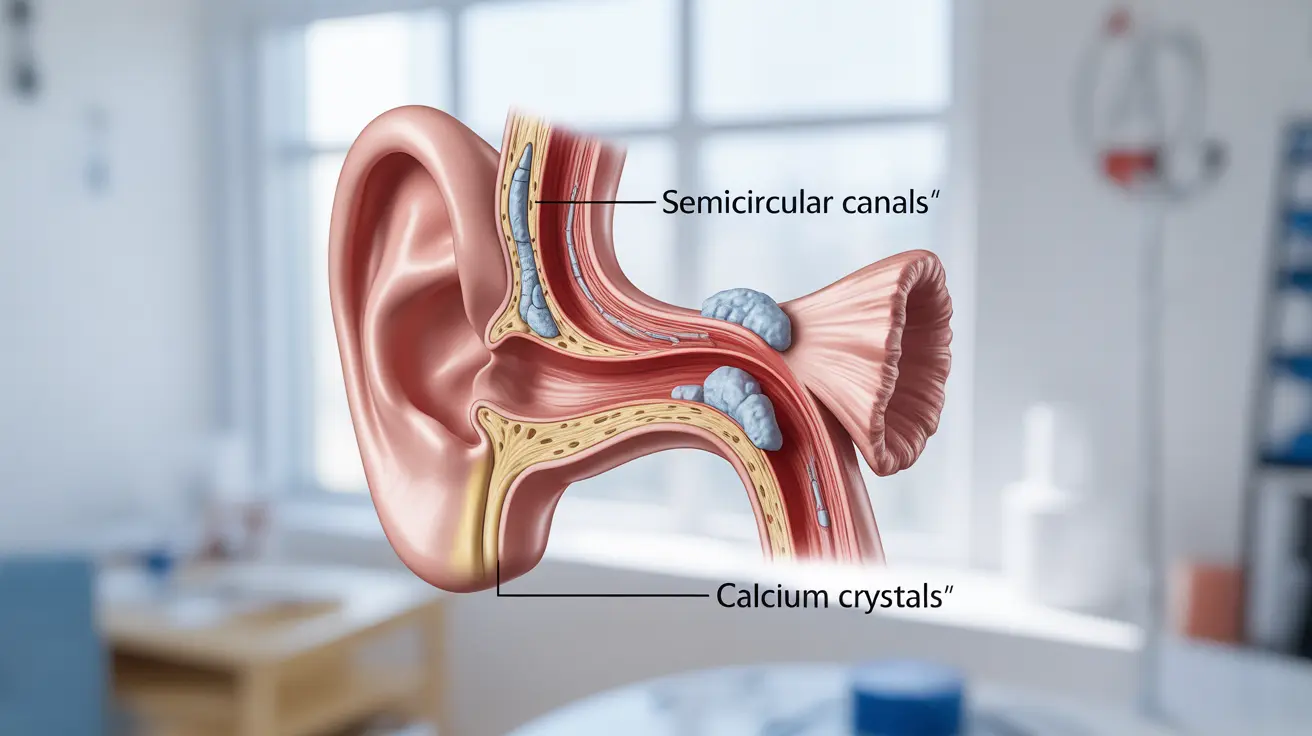Experiencing dizziness when bending over can be both concerning and disruptive to daily activities. This common symptom can range from mild lightheadedness to severe vertigo, and understanding its underlying causes is crucial for proper treatment and prevention.
While occasional dizziness might not be serious, persistent symptoms when bending over could indicate various health conditions that require attention. Let's explore the causes, warning signs, and effective solutions for managing this uncomfortable sensation.
Common Causes of Positional Dizziness
Several factors can contribute to feeling dizzy when bending over:
Benign Paroxysmal Positional Vertigo (BPPV)
BPPV occurs when tiny calcium crystals in your inner ear become dislodged, causing false signals about your body's position. This condition specifically triggers dizziness during position changes, including bending over.
Orthostatic Hypotension
This condition involves a sudden drop in blood pressure when changing positions. When you bend over and then straighten up, your body may not regulate blood flow quickly enough, leading to dizziness.
Dehydration and Blood Sugar Issues
Insufficient fluid intake or low blood sugar levels can affect your body's ability to maintain stable blood pressure during position changes, resulting in dizziness when bending over.
Medical Conditions That May Cause Dizziness
Several underlying health conditions can contribute to positional dizziness:
- Inner ear disorders
- Vestibular neuritis
- Meniere's disease
- Cardiovascular issues
- Neurological conditions
Prevention and Management Strategies
Several lifestyle modifications and preventive measures can help reduce episodes of dizziness:
- Stay well-hydrated throughout the day
- Move slowly when changing positions
- Maintain stable blood sugar levels
- Practice good posture
- Get regular exercise to improve circulation
When to Seek Medical Attention
Certain symptoms warrant immediate medical evaluation:
- Severe or persistent dizziness
- Accompanying chest pain or shortness of breath
- Sudden onset of severe headache
- Loss of consciousness
- Difficulty speaking or walking
Frequently Asked Questions
What are the most common causes of feeling dizzy when bending over?
The most common causes include BPPV, orthostatic hypotension, dehydration, and inner ear disorders. These conditions can affect your balance system or blood pressure regulation when changing positions.
How can dehydration or low blood sugar lead to dizziness when I bend down?
Dehydration reduces blood volume, while low blood sugar affects your body's energy supply. Both conditions can impair your body's ability to maintain stable blood pressure during position changes, resulting in dizziness.
When should I see a doctor if I get dizzy every time I bend over?
Consult a healthcare provider if dizziness is frequent, severe, or accompanied by other symptoms like headaches, hearing changes, or difficulty walking. Persistent dizziness that interferes with daily activities requires medical evaluation.
Can inner ear problems like BPPV cause dizziness specifically when bending over?
Yes, BPPV is a common inner ear condition that specifically causes dizziness during position changes, including bending over. It occurs when calcium crystals in the inner ear become displaced, sending incorrect signals about head position to the brain.
What treatments or lifestyle changes can help reduce dizziness when bending down?
Effective treatments include staying hydrated, moving slowly during position changes, maintaining good posture, and following specific exercises prescribed by healthcare providers. For BPPV, specialized positioning maneuvers can help relocate displaced inner ear crystals.




